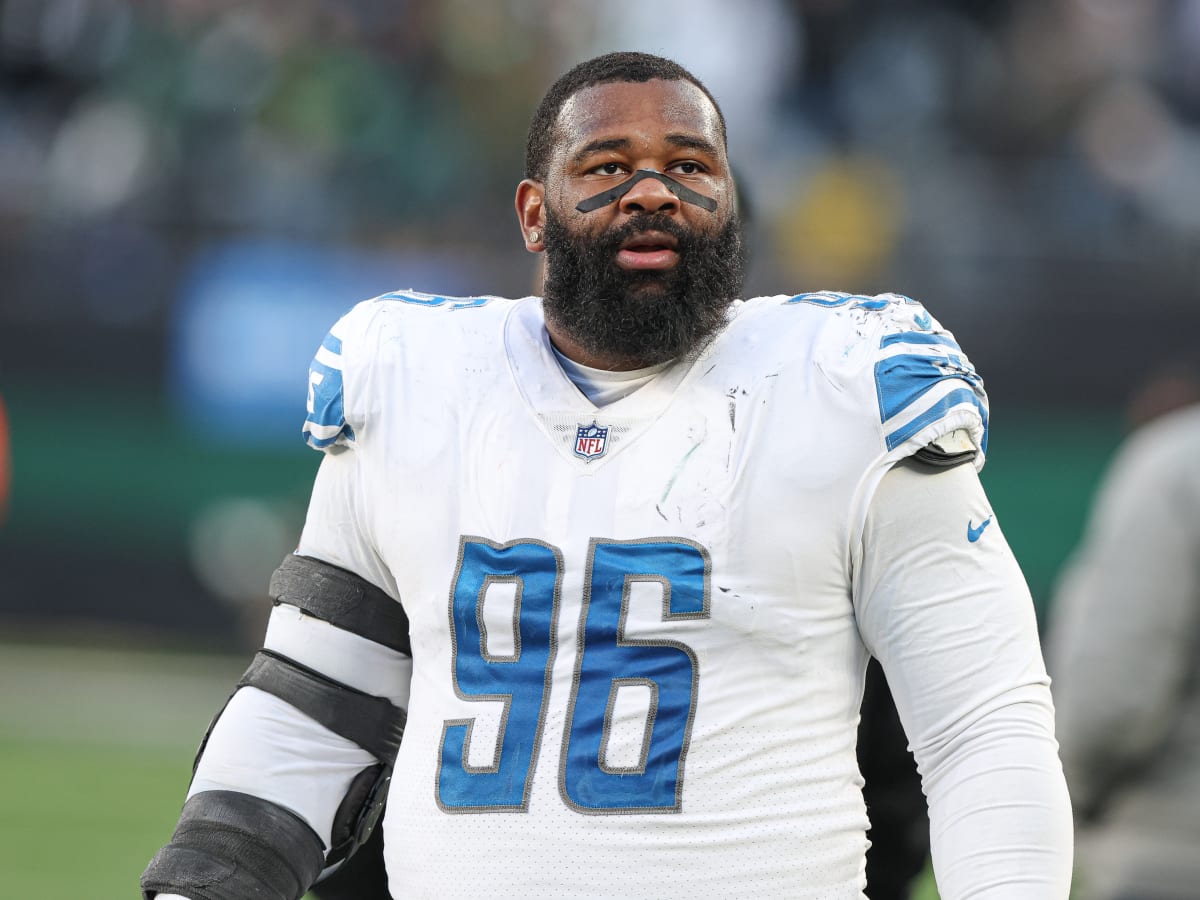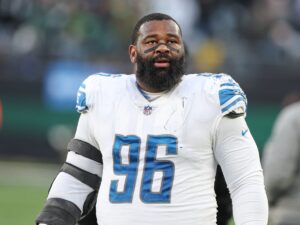
Isaiah Buggs, once a formidable force on the football field, had seen the pinnacle of athletic success. As a defensive tackle for the Detroit Lions, Buggs had built a reputation as a relentless and powerful player, one who could change the course of a game with a single tackle. But on a fateful June evening in his hometown of Ruston, Alabama, Buggs found himself in a situation that threatened to overshadow his football legacy: he was facing another criminal charge.

Buggs’ life had been a series of highs and lows. Born and raised in the tight-knit community of Ruston, he had been a star from a young age. His natural talent and physical prowess made him a standout player at Ruston High School, where he led his team to multiple state championships. College scouts took notice, and soon Buggs was playing for the University of Alabama, where his dominance on the field only grew. After a successful college career, he was drafted by the Detroit Lions, fulfilling a dream he had nurtured since childhood.
Yet, alongside his football achievements, Buggs’ life was marred by personal struggles. Growing up in a rough neighborhood, he had seen firsthand the impacts of crime and poverty. Despite his success, the shadow of his past was never far behind. A series of poor decisions and associations began to tarnish his reputation. The first major blow came when he was arrested for a bar fight in his rookie year. The Lions stood by him, and he managed to avoid jail time with community service and fines.
However, this brush with the law was just the beginning. Over the next few years, Buggs was involved in several more incidents, each more serious than the last. Charges ranged from minor altercations to more serious allegations of assault. Each time, Buggs managed to navigate the legal system with the help of high-powered lawyers and the support of his team. But each incident took a toll on his career and his psyche.
On that particular June evening, Buggs found himself at the center of another controversy. Details were murky, but it was clear that something had gone terribly wrong. According to initial reports, Buggs had been involved in a physical altercation outside a local nightclub. Witnesses claimed that he had been drinking heavily and had gotten into a heated argument with another patron. The confrontation escalated, leading to a violent scuffle that left Buggs’ opponent with serious injuries.
As news of Buggs’ latest legal troubles spread, the reaction was swift and divided. Many in Ruston, who had watched Buggs grow from a promising young athlete into an NFL star, were shocked and saddened. Local sportswriter Charlie Davis captured the sentiment of many when he wrote, “Isaiah Buggs was a beacon of hope for this community, a symbol of what hard work and talent can achieve. To see him fall from grace in such a public and tragic way is heartbreaking.”
Others were less sympathetic. Critics argued that Buggs had been given too many chances, that his repeated brushes with the law showed a pattern of behavior that could no longer be ignored. Sports commentators debated whether the Lions would continue to support him or if this latest incident would be the end of his professional career.
In the days following the altercation, Buggs remained out of sight, leaving his legal team to handle the fallout. His attorney, Amanda Pierce, a well-known defense lawyer with a reputation for handling high-profile cases, released a statement urging the public not to rush to judgment. “Mr. Buggs is cooperating fully with the investigation,” Pierce said. “We ask that everyone withhold judgment until all the facts are known.”
Despite the uncertainty surrounding his future, there were those who still believed in Buggs. One of his staunchest supporters was his former high school coach, Reggie Thomas. Coach Thomas had been a mentor to Buggs from a young age and had seen firsthand the challenges he faced. “Isaiah has always had a good heart,” Thomas said in an interview. “He’s made some mistakes, but I believe he can turn things around. He just needs the right support and guidance.”
As the legal proceedings unfolded, Buggs’ case became a national story. Sports networks covered every development, and social media buzzed with opinions and speculation. The pressure on Buggs was immense, and the stakes were high. His career, his reputation, and even his freedom were all on the line.
In the midst of the media frenzy, Buggs decided to take control of his narrative. With the help of his PR team, he arranged for an exclusive interview with a prominent sports journalist, hoping to share his side of the story. The interview was broadcast nationwide, and millions tuned in to hear from the embattled star.
Sitting in front of the camera, Buggs looked a shadow of his former self. The stress and turmoil of the past weeks were etched on his face, but there was also a steely determination in his eyes. “I’ve made mistakes,” he began, his voice steady. “I’ve done things I’m not proud of, and I’ve hurt people along the way. But I want to be better. I want to make amends for the wrongs I’ve done.”
Buggs spoke candidly about his struggles with fame and the pressures that came with it. He admitted to battling personal demons, including substance abuse, and vowed to seek help. “I know I can’t change the past, but I can change my future,” he said. “I’m committed to getting the help I need and becoming the person I want to be.”
The interview marked a turning point for Buggs. While public opinion remained divided, many were moved by his honesty and willingness to take responsibility for his actions. The Lions, too, were encouraged by his resolve and announced that they would support him through his recovery and legal battles.
Buggs entered a rehabilitation program and began working with a team of counselors and mentors. He also started speaking at schools and community centers, sharing his story and warning young people about the dangers of poor decision-making. His efforts to give back to the community resonated with many, and slowly, he began to rebuild his image.
The legal case against Buggs was complicated and drawn-out. With Pierce’s expertise, Buggs was able to negotiate a plea deal that included probation, community service, and continued rehabilitation. It was a lenient sentence, considering the charges, but it came with strict conditions.
For Buggs, the road to redemption was long and challenging. He had to prove himself both on and off the field. The Lions reinstated him, but with a clear message: there would be no more second chances. Buggs threw himself into training, determined to reclaim his place in the team and earn back the trust of his fans and teammates.
As the new football season approached, Buggs’ hard work paid off. He returned to the field with a renewed sense of purpose and played some of the best games of his career. His performance helped lead the Lions to a successful season, and he was hailed as a comeback story in the world of sports.
Isaiah Buggs’ journey was far from over, but he had taken the first steps towards redemption. His story served as a powerful reminder of the importance of accountability, resilience, and the possibility of change. For Buggs, the path to forgiveness and success was not easy, but it was a path he was committed to walking, one day at a time.
Leave a Reply